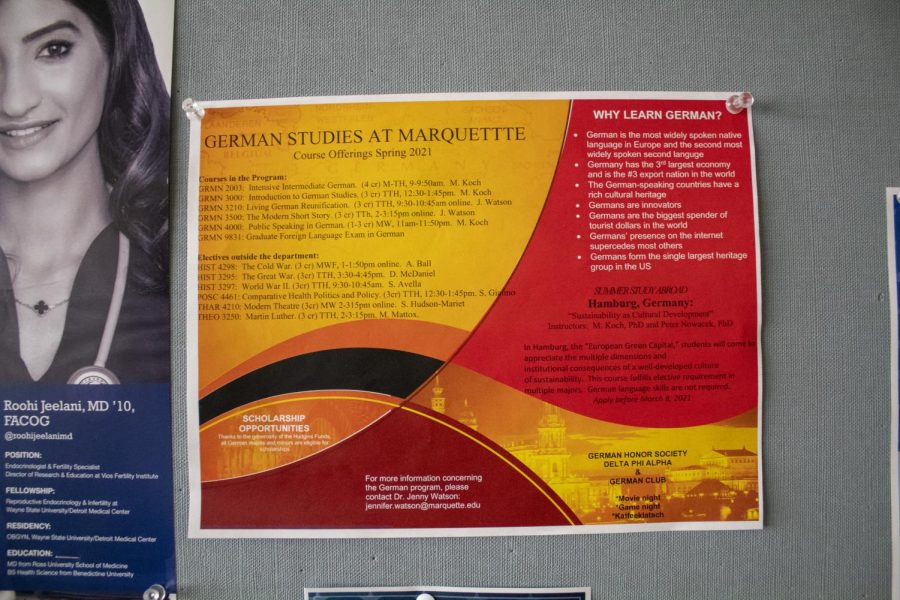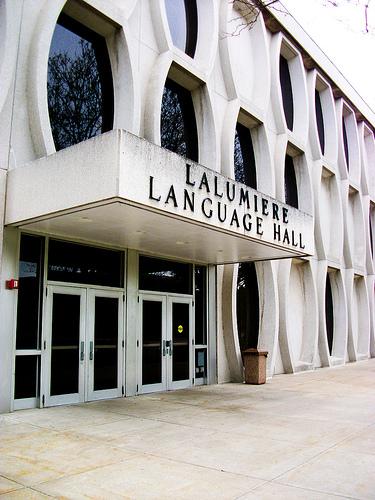Beginning fall 2015, the College of Arts & Sciences is changing its core requirements and lightening some of the credit burden students face compared to those in other colleges.
“This change will make it easier for students to graduate in four years, which will reduce their overall debt load and time to degree,” said Dean Richard Holz in an email. “One of our strategic plan goals is to become a more transfer-friendly college. This change will help transfer students have better access to high impact college practices while still graduating with a Marquette degree in four years.”
Holz also said that he wanted to emphasize that the University Core of Common Studies is a central part of Marquette and that this college curriculum change will have no impact on the common core.
Currently, students enrolled in the College of Arts & Sciences have a few different core requirements to receive their undergraduate degree. They must take nine credits of philosophy, nine credits of theology, zero to 14 credits of foreign language, and six credits of mathematical reasoning. A minimum of 42 credit hours must be completed within the college, and 32 of those credits need to be completed at Marquette, for a total of 128 credit hours upon graduation.
Changes will include the elimination of three credit hours from each of these classes, meaning that beginning next year students will need to take six credits apiece of philosophy and theology and three of mathematical reasoning. Foreign language credits will no longer be required from students seeking a Bachelor of Science, and Bachelor of Arts students will only need up to three semesters of foreign language. Any further language requirements are left up to the discretion of individual majors, and some departments may choose to have higher minimum credit hours. Additionally, students in the College of Arts & Sciences will now only need 120 credit hours to graduate.
Current students can opt in to this change if they choose, and the College of Arts & Sciences will begin to send out emails informing students of their options, starting with students who will graduate in December 2015. Some advisors will be specially trained to help students with this transition.
Holz and students alike are “excited” for the change, as it will allow more course freedom and flexibility.
“Across the country, 120 credits is today’s standard for universities,” Holz said. “By making this move, we will now be aligned with all of our major competitors, including Boston College, Georgetown, Loyola (Chicago) and Creighton. This move will provide more pathways for students to pursue their passions via double majors and ultimately be more professionally in demand, while having a truly transformative experience.”
Alex Redle, a senior in the College of Arts & Sciences, also mentioned the increased opportunity to have a double major as a benefit of the change.
“I am very excited for this change because it provides a new flexibility for class choices for arts and science majors,” Redle said. “It will allow them to double major more and take more classes that they are interested in.”
Darcy James, a freshman in the College of Arts & Sciences, said this change means less stress for her and other students to graduate on time, but also mentioned the importance of taking core classes.
“It will be helpful for people who already know what they want to major in, so they can focus on classes for their major,” James said. “It’s less stress about graduating on time and fulfilling all the class requirements. But sometimes it is good to take classes outside one’s major because you can learn some really interesting things.”
Correction: An earlier version of this story stated that Bachelors of Arts students would now need to take two semesters of foreign language. They actually have to take three semesters of foreign language. The Wire regrets the error.










